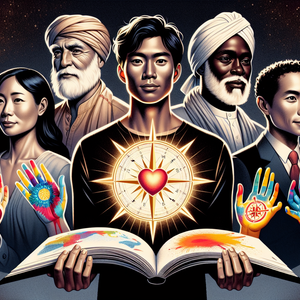The Curiosity Blueprint for Career Longevity

As futurist Alvin Toffler famously stated, “The illiterate of the 21st century will not be those who cannot read and write, but those who cannot learn, unlearn, and relearn.” In a world where artificial intelligence, automation, and global disruptions are redefining industries, this statement holds profound relevance. The skills that were once coveted can quickly become obsolete, leaving professionals scrambling to stay relevant. Curiosity is the driving force behind the ability to learn, unlearn, and relearn. It fuels the desire to ask questions, explore new possibilities, and approach challenges with a growth-oriented mindset. Unlike static knowledge or narrowly defined technical skills, curiosity is a dynamic quality that empowers individuals to stay adaptable in the face of change. Take, for example, the emergence of artificial intelligence tools like ChatGPT, which are revolutionizing industries from marketing to healthcare. Professionals who approach these innovations with curiosity—asking how they work, how they can be applied, and what challenges they may solve—can harness their potential. Those who resist change, however, risk becoming stagnant in a rapidly shifting environment. Curiosity, then, is not just a personal trait but a professional survival skill. It allows individuals to remain relevant, innovate, and thrive in a world of uncertainty.
The Benefits of Curiosity for Career Longevity
Curiosity isn’t just about satisfying intellectual curiosity—it’s a force that actively drives career growth and sustainability. Here are some key benefits: 1. Staying Relevant in a Rapidly Changing World: In industries such as technology, finance, and healthcare, change is the only constant. Curiosity equips professionals to continually learn new skills and adapt to evolving demands. For instance, in the education sector, the rise of online learning platforms and AI-driven tools has transformed traditional teaching methods. Educators who remain curious and explore these tools can better serve their students and future-proof their careers. Similarly, consider the example of a marketing professional. By staying curious and learning about AI-driven analytics, social media trends, or consumer behavior tools, they can remain indispensable in their field. In contrast, those who resist such changes may find themselves falling behind. 2. Fostering Innovation and Creativity: Curious individuals often challenge the status quo and think outside the box, leading to innovation. Companies like Google and 3M have embedded curiosity into their workplace culture, allowing employees to dedicate time to passion projects. These initiatives have resulted in groundbreaking innovations, such as Gmail and Post-it Notes. Curiosity-driven innovation isn’t limited to tech giants. In smaller organizations or personal career paths, a curious mindset can lead to unique solutions. For example, a curious entrepreneur exploring untapped markets or experimenting with new business models might discover a niche that propels their venture to success. 3. Enhancing Problem-Solving Skills: Curiosity transforms challenges into opportunities. When faced with a problem, curious individuals ask questions like, “What can I learn from this?” or “What haven’t I tried yet?” This mindset reduces fear of failure and encourages exploration. Consider a project manager working on a failing initiative. Instead of giving up, a curious approach might lead them to explore Agile or Scrum methodologies, revamp workflows, and ultimately turn the project around. Curiosity enables professionals to see beyond immediate obstacles and seek creative solutions. 4. Creating Lifelong Learning Habits: Curiosity forms the foundation of lifelong learning. By regularly seeking new knowledge, you develop a habit of growth that compounds over time. Whether it’s taking an online course, attending a workshop, or simply reading industry articles, each act of learning strengthens your ability to tackle future challenges. For instance, Satya Nadella, CEO of Microsoft, has credited his success to his insatiable curiosity and commitment to learning. Under his leadership, Microsoft embraced cloud computing and artificial intelligence, positioning the company as a leader in the tech space. His curiosity allowed him to anticipate industry shifts and adapt accordingly.
How to Cultivate Curiosity and Lifelong Learning in Your Career
Curiosity isn’t an innate gift—it’s a skill that can be developed and nurtured. Here are practical strategies to make curiosity a daily habit: 1. Ask Better Questions: Develop the habit of asking thoughtful, open-ended questions. Instead of asking, “How do I solve this problem?” consider asking, “What’s another way to approach this?” or “What’s the bigger picture here?” Quality questions often lead to deeper insights and better solutions. 2. Adopt a Beginner’s Mindset: Even if you’re an expert in your field, approach new situations as if you’re a novice. This mindset encourages exploration and prevents complacency. For example, a seasoned graphic designer might experiment with virtual reality platforms to expand their creative horizons. 3. Experiment Fearlessly: Curiosity thrives in environments where failure is seen as a learning opportunity. Take small, calculated risks by experimenting with new tools, methods, or projects. Whether it’s testing a new productivity app or volunteering for a cross-department collaboration, each experiment adds to your knowledge base. 4. Surround Yourself with Curious People: Curiosity is contagious. Engage with colleagues, mentors, or professional communities that value exploration and innovation. Networking events, industry meetups, or online forums can expose you to fresh perspectives and ideas. 5. Schedule Time for Learning: Make curiosity a priority by dedicating time to professional development. Set aside 15 minutes daily to read industry news, take an online course, or watch expert webinars. Over time, these small investments can yield significant career growth.
Real-Life Examples of Curiosity in Action
1. Elon Musk, Entrepreneur: Musk’s ventures—Tesla, SpaceX, and Neuralink—are rooted in curiosity. By asking bold questions like, “Why aren’t electric cars mainstream?” or “How can humanity become multi-planetary?” Musk has driven innovation that many once deemed impossible. 2. Angela Duckworth, Psychologist and Author: Angela Duckworth’s curiosity about human perseverance and success led to groundbreaking research on grit. Her work has transformed the way educators, employers, and individuals approach talent and resilience. 3. Satya Nadella, CEO of Microsoft: Nadella’s leadership is a testament to the power of curiosity. By embracing new technologies like cloud computing and AI, he revitalized Microsoft and positioned it as a global tech leader.
In an era of constant disruption and rapid change, curiosity is no longer optional—it’s a career imperative. By cultivating curiosity through intentional habits like asking better questions, adopting a beginner’s mindset, and embracing lifelong learning, you can future-proof your career and remain adaptable, innovative, and engaged. The next time you face a challenge or unfamiliar situation, lean into your curiosity. Ask yourself, “What can I learn from this?” or “What opportunities does this open up?” Over time, this mindset will not only sustain your professional success but also enrich your personal growth, making curiosity your most valuable career asset.
Innovation Strategist
Google, Deloitte, IDEO, Amazon
Key Responsibilities and Skills
Develop and implement strategies to drive innovation within organizations by identifying emerging trends, technologies, and market opportunities.
Collaborate with cross-functional teams to prototype and test new products, services, or processes.
Conduct market research and competitive analysis to inform decision-making and uncover untapped opportunities.
Strong analytical skills, creative problem-solving, and the ability to translate abstract ideas into actionable plans.
Unique Qualification
A background in design thinking or foresight methodologies is often advantageous.
AI Product Manager
Microsoft, NVIDIA, Meta, IBM
Key Responsibilities and Skills
Lead the development and deployment of AI-driven products, ensuring alignment with business goals and customer needs.
Collaborate with data scientists, engineers, and designers to build AI models and integrate them into user-friendly applications.
Analyze the ethical implications and potential biases in AI solutions to ensure responsible innovation.
Knowledge of machine learning concepts, product lifecycle management, and user-centered design.
Unique Qualification
Experience with AI/ML platforms like TensorFlow or PyTorch is often required.
Learning and Development (L&D) Specialist
LinkedIn, PwC, Accenture, Coursera
Key Responsibilities and Skills
Design and deliver training programs that foster continuous learning and skill development across the workforce.
Leverage emerging tools such as AI-driven learning platforms or VR for immersive training experiences.
Evaluate learning outcomes and adapt programs based on feedback and performance metrics.
Strong communication skills, instructional design expertise, and a deep understanding of adult learning principles.
Unique Qualification
Certifications such as CIPD or ATD (Association for Talent Development) are often valued.
User Experience (UX) Researcher
Adobe, Spotify, Shopify, Airbnb
Key Responsibilities and Skills
Conduct user research to understand customer needs, pain points, and behaviors, driving the design of intuitive digital experiences.
Use curiosity-driven techniques such as ethnographic studies, usability testing, and data analysis to inform product development.
Work closely with UX designers and product teams to create user-centric solutions.
Expertise in research methodologies, data visualization, and tools like Figma or Axure.
Unique Qualification
Familiarity with human-computer interaction (HCI) principles and a portfolio of user research projects.
Futurist or Strategic Foresight Analyst
McKinsey & Company, Shell, ARUP, World Economic Forum
Key Responsibilities and Skills
Analyze global trends, technological advancements, and societal shifts to anticipate future scenarios and guide organizational strategy.
Develop actionable insights and roadmaps to prepare businesses for long-term challenges and opportunities.
Present findings through storytelling, data visualization, and scenario planning workshops.
Strong research background, systems thinking, and the ability to synthesize complex information into strategic recommendations.
Unique Qualification
Certification in strategic foresight or futures studies, such as from the Institute for the Future (IFTF), is highly regarded.


